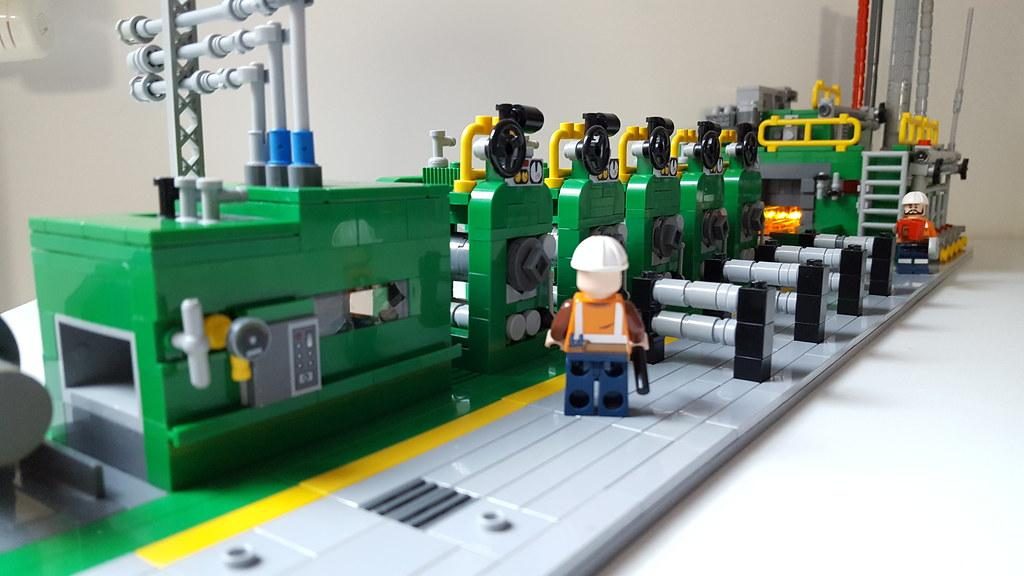
There are many reasons companies investigate the option of leasing or financing equipment rather than purchasing it outright. One of the biggest is simply the upfront capital involved in purchasing equipment, especially in the case of very advanced or expensive machinery. Leasing this equipment, at least initially, allows the business to make use of it to generate revenue and grow their profits while paying a more affordable monthly fee.
Advantages of equipment leasing:
Another common reason companies choose to rent their equipment rather than buy it outright is if they’re in a field where high equipment turnover is the norm. PCs and laptops, for example, are pricey to purchase upfront, yet may well become obsolete (at least for a tech company’s needs) within two to four years. Once your initial lease period is up, and sometimes before, clients can choose to lease a newer, updated version, rather than being stuck with an outdated model.
Of course, businesses may also just need the equipment or machinery for a short term to complete a particular project for a client. Unless you know there’s a very good chance indeed that you’ll be able to use the equipment again in future, in this instance renting is almost always the most prudent option.
Equipment leasing vs. equipment financing and loans
Equipment financing and loans is another avenue companies may wish to explore, particularly if they want to come away with an asset at the end of the contract. This is especially true in industries where equipment turnover tends to be slow. Examples might be in the catering, agricultural or textile industries.
It is important to note, however, that taking out a loan on anything always means you’re going to end up paying more over the long run than if you purchased the equipment outright. There are some nifty online calculators and video tutorials which can help you make a more data-driven decision on which is right for you.
Applying for equipment financing rather than leasing may have other disadvantages. If the equipment you finance does become obsolete before you’ve repaid the loan amount, you’re still liable to keep paying for it – even though you’re no longer making money with it. Another big consideration is maintenance.
Upkeep and maintenance
If you have trained and knowledgeable employees who can competently perform routine maintenance, source spares and generally keep your machinery in good nick, equipment financing is definitely an option. If you don’t, on the other hand, negotiating a rental agreement which includes general repairs and upkeep (just as you would have when renting a property from a landlord) is likely the better solution. Forklift rentals are a good example – your warehouse staff may be well-trained in operating said forklift, but they’re not as likely to be versed in routine maintenance and repairs. Leasing your equipment takes the bulk of this responsibility off of you.
Ability to resell / depreciation
Another factor to consider when looking at purchasing or financing equipment is how easily you’ll be able to sell the asset should you need to upgrade. Taking the time to examine the secondhand market and compare the going rates for new vs. used equipment should give you at least a general overview. Most online classifieds platforms will allow you to see when the ad was originally posted, giving you an indication of how long it typically takes to sell the item too. If it’s already taking months for buyers to find sellers, it’s a good sign that you’ll battle to shift your equipment when the time comes.
Capital Lease / Finance Lease / Other alternatives
An interesting middle ground between leasing and financing which may be open to you is the option for a finance lease, sometimes also referred to as a nominal lease. Essentially, you are guaranteed the option to purchase the equipment come the end of the rental period, at an initial agreed-upon price which accounts for depreciation. In this way, you’re able to take advantage of the fixed monthly payments of a lease agreement, with the right to buy the equipment at a fair price should you wish to. There are several different versions of this kind of lease agreement commonly offered. A fair market value lease, for example, offers lower monthly payments than a buyout lease, but the cost to purchase the equipment at the end of the rental period will be higher.
Every company is unique, and there will always be multiple factors to take into consideration when deciding whether to lease, buy, finance, or find a solution somewhere in-between. Perhaps the most important of all is simply to take the time to explore all avenues, weigh up the pros and cons carefully, and use this data to make an informed decision.
Image source: https://www.flickr.com/photos/54395270@N08/33585370986/